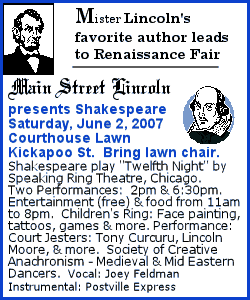|
Yet his work attracted financial backing (a sign of a successful
inventor) from the likes of George Westinghouse and J.P. Morgan. He
was awarded the prestigious Edison Medal in 1917. Despite winning
this award, he never received the proper recognition or respect
during his lifetime, which is one reason why so few people know much
about this man. He claimed to have invented a better system of
electrical current than Thomas Edison. In fact, he even worked for
Edison for one year. However, Edison would later electrocute animals
with this man's technology in an attempt to prove how dangerous it
was.
Maybe we can get a better idea of the type of person he was by
what others said about him...

"He has contributed more to electrical science than any man up to
his time," according to Lord Kelvin, obviously placing him ahead of
Thomas Edison.
"He is an eminent pioneer in the realm of high-frequency currents
... I congratulate him on the great successes of his life's work,"
said Albert Einstein.
Radio pioneer Edwin Armstrong said, "The world ... will wait a
long time for his equal in achievement and imagination."
Who is this mystery inventor? Was he a successful inventor, a
"mad scientist" or a quack?
His name was Nikola Tesla. He was born in 1856 in Croatia, which
was then a part of Yugoslavia. He wasn't a mad scientist, although
he was the inspiration for the mad scientist in Max Fleischer's
Superman cartoons. And he definitely wasn't a quack.
Tesla was a genius, pure and simple -- a man whose ideas were
years ahead of his time. This explains why most people didn't
understand his ideas in the late 1800s and why most of us have never
heard of him since. His two greatest accomplishments were in the
areas of electricity and radio.
[to top of second column]

 |

He generated the alternating current power that we all use. It is
Tesla's AC rather than Edison's DC that gives us electrical power
over long distances. He designed the first hydroelectric power plant
in Niagara Falls with his AC current in 1895.
As a radio pioneer, Tesla had done more in the development of
radio than the man who is regarded as the "father of radio" --
Guglielmo Marconi. In fact, Marconi used 17 of Tesla's radio patents
in his work. As a result, many of Marconi's applications were turned
down. Ironically, it was Marconi, not Tesla, who won a Nobel Prize
in 1909.
As for the other claims in this story...
Tesla claimed to be able to create a man-made earthquake
because... he actually did create a man-made earthquake! In 1898,
using a device he created that was about the size of an alarm clock,
he found the exact frequency required to cause the earth to rumble
-- the kind of experiment that you might see in a sci-fi movie --
and shook Manhattan. Realizing that his experiment was getting out
of hand, he stopped it just as the police came running through his
door. It was later captured in an article in the New York American
entitled "Tesla's Controlled Earthquakes."

Tesla also once believed that he was up for a Nobel Prize in
physics because the press had reported that he and his main rival
would share a Nobel Prize, but that the rival refused to accept the
award with him. Who was the rival? It was his former boss, Thomas
Edison, the man he worked for in 1884. The Nobel Foundation does not
back up this claim, though.
He kept dozens of notebooks of his findings, many of which hadn't
yet been put into practice by the time he died. These notebooks were
mysteriously taken from his home on the day he died. Tesla lived the
last 30 years of his life alone. He never married and, despite his
many successes, he died broke in 1943.
[Text from file received
from Paul Niemann]
Paul Niemann may be reached at
niemann7@aol.com.
Copyright Paul Niemann 2007
(Other
columns)
 |